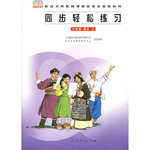题目内容
The engine just won’t start. Something seems_______ wrong with it.
A. to go B. to have gone
C. going D. having gone
练习册系列答案
 同步轻松练习系列答案
同步轻松练习系列答案 课课通课程标准思维方法与能力训练系列答案
课课通课程标准思维方法与能力训练系列答案
相关题目
题目内容
The engine just won’t start. Something seems_______ wrong with it.
A. to go B. to have gone
C. going D. having gone
 同步轻松练习系列答案
同步轻松练习系列答案 课课通课程标准思维方法与能力训练系列答案
课课通课程标准思维方法与能力训练系列答案